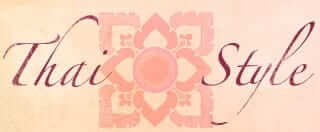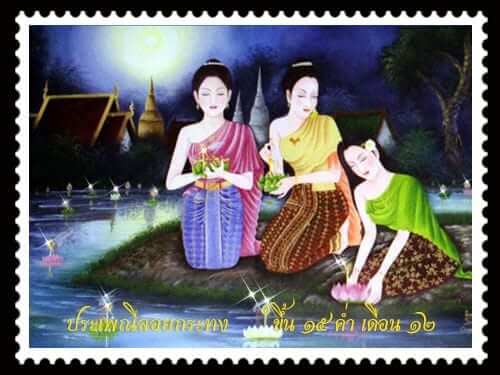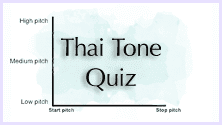Learn Everyday Thai with Kruu Jiab
I apologise for my absence over the last couple of months. I have been moving from the UK into my beautiful new house in Thailand! Now I am settling into my new home I am getting back into the swing of things and will be sharing lots and lots of articles and posts on Thai language and culture! I would like to kick things off with this (slightly late) post about the beautiful Loy Krathong festival. Let me know if you have any questions and I look forward to sharing more and hearing from you soon!
Please note: If you have a slow internet connection the audio may take a moment to load and play
………………………………
อาทิตย์ที่แล้ว วันที่ 25 พฤศจิกา(ยน) เป็นวันลอยกระทง
Aa-tíd Têe~Láew, Wun~Têe Yêe~Sìb Hâa Prúed-sà-jì-gaa-(yo’n) Bpe’n Wun Loy Krà-to’ng.
week + last, + date + 20 + 5 + November + be/is/am/are (status) + to float + floating basket.
Last week on the 25th November, it was Loy Krà-to’ng day.
Proper, formal and slow pronunciation
Proper, formal and fast pronunciation
Informal and very fast pronunciation
………………………………
คุณได้ไปเที่ยววัด และ/หรือ ลอยกระทงที่ไหนไหมคะ
Koon Dâi Bpai~Têaw Wúd Láe’/Rŭee Loy Krà-to’ng Têe~Năi Măi? Ká
You + did/have (past / perfect tense) + to go out / to go (somewhere) for pleasure/fun + temple + and/or + to float + floating basket + somewhere + ? / Did…?
Did you go out to a temple and/or float the banana leaf boat somewhere?
Proper, formal and slow pronunciation
Proper, formal and fast pronunciation
Informal and very fast pronunciation
………………………………
Culture Point:
ลอยกระทง : Loy Krà-to’ng is a festival celebrated annually on the 15 waxing moon night of the 12th month in the traditional Thai lunar calendar. On this day, Thais float decorated baskets ( กระทง : Krà-to’ng), usually made from banana leaves or other types of leaves, on the river, canal or a pond, making a wish as they do so. The festival is a ritual paying respect to the water spirits.
In northern Thailand, ลอยกระทง : Loy Krà-to’ng coincides with the Lanna (northern Thai) festival ‘ ยี่เป็ง : Yêe Pe’ng. ‘ ยี่ : Yêe’ means “two” and ‘ เป็ง : Bpe’ng‘ means a “full moon day”. Yi Peng refers to the full moon day in the second month according to the Lanna lunar calendar and northern Thai celebrates and makes merit with sky lanterns ( โคมลอย : Kom Loy = lantern + float).
………………………………
Pronunciation Point:
1. Formal situations such as business correspondences, TV host/reporters, etc., Thais usually speak with formal language and with proper pronunciation.
2. Informal situations in everyday life such as speaking with acquaintances, friends and family or even with strangers, Thais usually speak with informal language by shortening the proper/grammatical correct sentences, changing the pronunciation of the letter ร : R (Rolling tongue) to ล : L and omitting the cluster sound in consonant cluster syllables like พฤศ : Prúed to Púed.
………………………………
Vocabulary:
อาทิตย์ : Aa-tíd = [noun] week [noun] Sunday
ที่แล้ว : Têe~Láew = [time word] ago; last (on the last occasion before the present; previously)
วันที่ : Wun~Têe = [noun] date (combined from the word วัน : Wun = day and ที่ : Têe = ordinal number indicator, place)
ยี่สิบ : Yêe~Sìb = [noun] twenty (combined from the word ยี่ : Yêe = two (used when saying the second month of lunar calendar and the word ‘twenty’) and สิบ : Sìb = ten)
ห้า : Hâa = [noun] five
พฤศจิกา(ยน) : Prúed-sà-jì-gaa-(yo’n) = [noun] November
เป็น : Bpe’n = [verb] to be; is/am/are (used to indicate status of someone or something)
วัน : Wun = [noun] day
ลอย : Loy = [noun] to soar; float; drift; glide; sail
กระทง : Krà-to’ng = [noun] floating basket, banana leave vessel
คุณ : Koon = [pronoun] you (polite/formal addressing word)
ได้ : Dâi = [tense word] did/have (used to indicate past or present/past perfect tense when place before action word)
ไปเที่ยว : Bpai~Têaw = [action verb] to go out, to go (somewhere) for pleasure/fun, to have a trip, to go wandering around
วัด : Wúd = [noun] temple
และ : Láe’ = [conjunction] and (used to connect words of the same part of speech, clauses, or sentences that are to be taken jointly)
หรือ : Rŭee = [conjunction] or (used to link alternatives)
ที่ไหน : Têe~Năi = [question word] which place? / where? [noun] somewhere (combined from the word ที่ : Têe = place and ไหน : Năi = which? in which)
ไหม : Măi? = [Question word] ? / Is/Am/Are….? / Do/Does/Did…? Will/Would…?
คะ : Ká = [Particle used by women after a question sentence to indicate they are speaking politely and formally]
ค่ะ : Kâ = [Particle used by women after a statement to indicate they are speaking politely and formally]
ครับ : Krúb = [Particle used by men after a question sentence or statement to indicate they are speaking politely and formally]
………………………………
Post By Kruu Jiab
Follow Kruu Jiab online here



